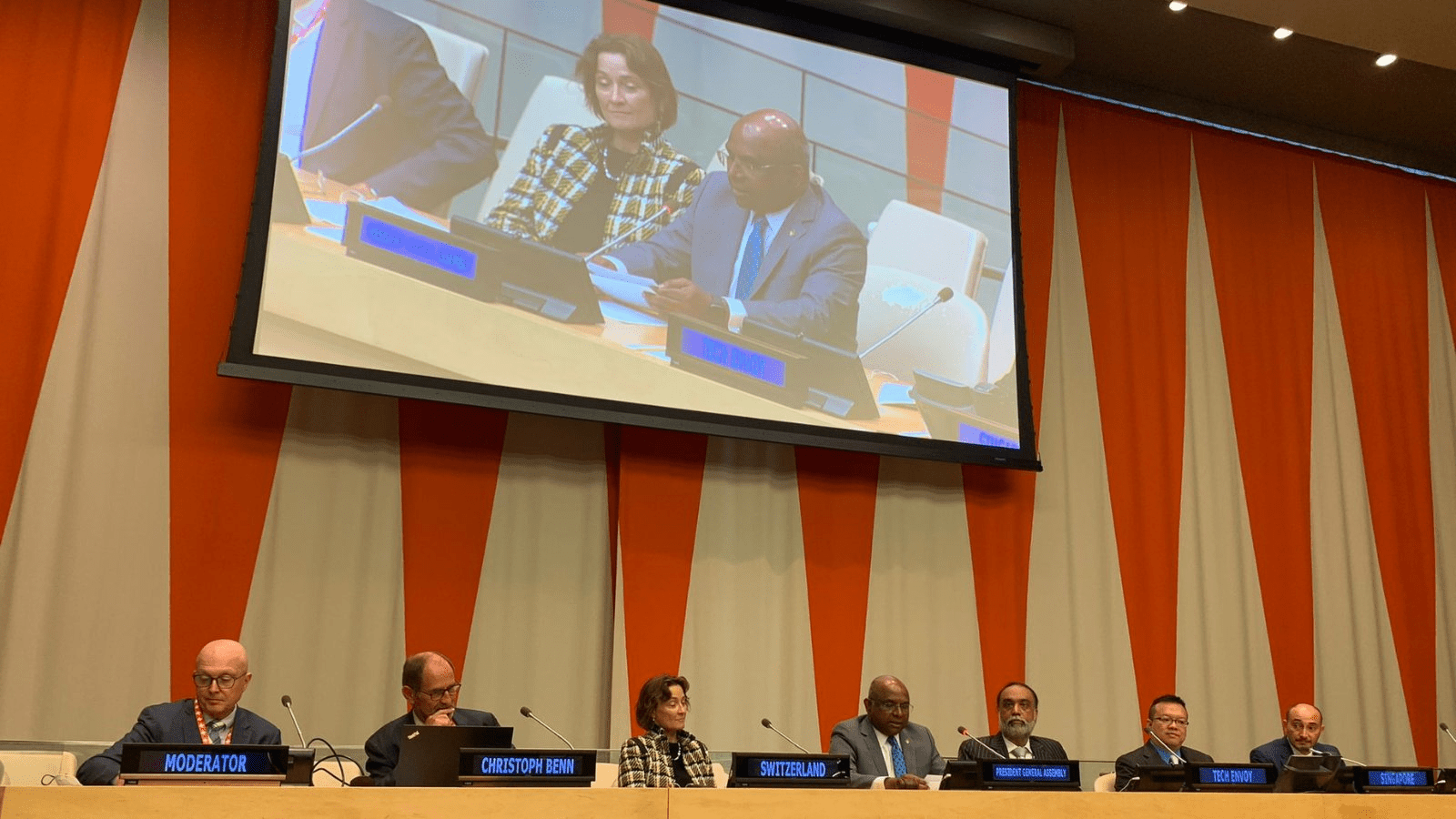Enabling the SDGs through data and AI: I-DAIR’s mandate introduced at the UN
The UK has invited the Global Pandemic Data Alliance to drive the implementation of the S7 Recommendations to improve safe data access and use for health emergencies.
In a panel entitled “Accelerating progress on the SDGs by empowering researchers and innovators to use data and AI”, co-sponsored by the Missions of Singapore and Switzerland, I-DAIR showcased its innovative approach to building digital research & development capacity and bridging the digital divide in health research.
As pointed out by Dr. Christoph Benn, I-DAIR’s Board Chair, a particular divide lies in knowledge-making, specifically in the matter of who is able to generate and benefit from digital technologies or data insights, and who is not. Smaller states in population and/or economy risk getting left behind from the knowledge and value creation generated by data and artificial intelligence technologies, deepening the digital health knowledge gap.
In this context, President of the 76th UNGA, H.E. Abdulla Shahid, insisted in his address on the necessity to collaborate universally to bridge this digital divide and commended I-DAIR for its initiative to foster access to inclusive, impactful, and responsible research into digital health and AI for health, with focus on the Global South.
H.E. Pascale Baeriswyl, Permanent Representative of Switzerland to the UN, followed by noting the difference technological progress and digitalization can make in accelerating the implementation of the 2030 Agenda – citing I-DAIR as a tangible demonstration of how cutting-edge scientific research on digital health and artificial intelligence can be leveraged globally to leave no one behind. Highlighting AI’s potential, referred to by some as “the new electricity”, Mr. Mark Seah, Deputy Permanent Representative of Singapore to the UN, reminded the panel that many people still do not have access to energy, urging for accelerating access to AI technologies for the Global South.
The panel, moderated by Mr. Steve Davis, Senior Strategy Advisor at the Bill and Melinda Gates Foundation, agreed on the need to build resilient, digitally enabled health systems by fostering transdisciplinary collaboration in digital health and AI for health research. Amb. Päivi Sillanaukee, Ambassador for Health & Wellbeing at the Finnish Ministry for Foreign Affairs, pointed out the issue of trust and transparency – key conditions for technology to reach its full potential. She noted the help I-DAIR can provide in building the trust needed for stakeholders to collaborate, especially considering the sensitive nature of health data. Dr. Nnenna Nwakanma, Chief Advocate of the World Wide Web Foundation, called attention to gender- equality, responsiveness, and inclusiveness in technologies – hoping I-DAIR’s diverse network of hubs and partners will participate to include more people, especially more women from the Global South. Referring to the recent Memorandum of Understanding recently signed between WHO and I-DAIR, Mr. Derrick Muneene, Head of Unit for Digital Health and Innovation at WHO, rejoiced over the two organizations’ collaboration on capacity building and on ethics and AI. Given the field’s fragmentation and sensitivity, Dr. Mehdi Snène, I-DAIR interim CEO, reminded us that no country can resolve all issues alone: from health data, digital health research, and clinical trials to AI governance, all pieces have to be brought together comprehensively to foster fairness and impact at the patient level. And that this can be done in a way that respects data privacy and sovereignty, using a federated learning approach.
After an exchange with the audience, UNSG Envoy on Technology, USG. Amandeep Singh Gill, pursued the discussion and underlined research and development as drivers of the digital economy. As true value is derived from knowledge, he welcomed I-DAIR’s unique focus on enabling the capital good side of digital health to build the deeper capacities of all countries to generate knowledge – driving local innovations, through local data to serve local solutions.
To conclude, ECOSOC President and Bulgaria Permanent Representative to the UN, Lachazera Stoeva, too highlighted I-DAIR’s added value, as few initiatives aim at developing AI’s public purposes and benefits. She noted that research inequity in matters of digital health and AI solutions for health resulted in countries being left behind, with little say in AI developments, increasing risks of misuse. She vowed for the international community to work together to bridge gaps, particularly in governance and looks forward to elaborating on the UNSG global digital compact and common agenda to slow and mend the divide.
I-DAIR has been designed to better support the digital transformation of health systems and provide a framework for an end-to-end approach to the global research ecosystem for digital health and AI for health. This work ranges from creating a global research map of digital health and AI and developing a governance model for AI and data, to benchmarking digital health solutions (e.g. electronic Patient Reported Outcome Monitoring). For more information about I-DAIR, kindly visit our website and consider following our progress on Twitter and LinkedIn.


